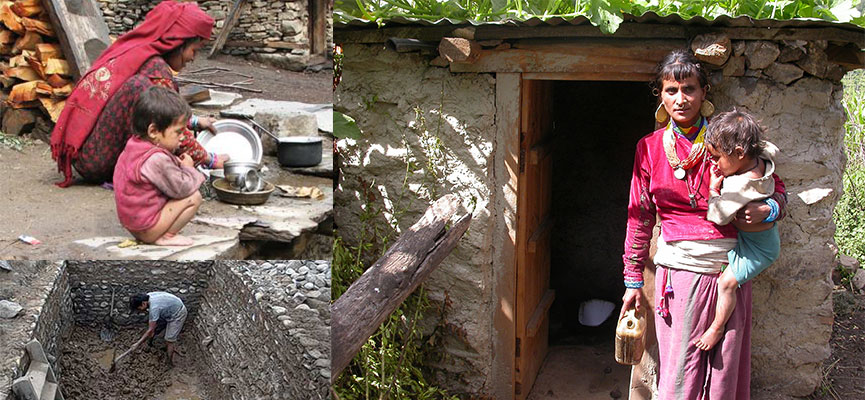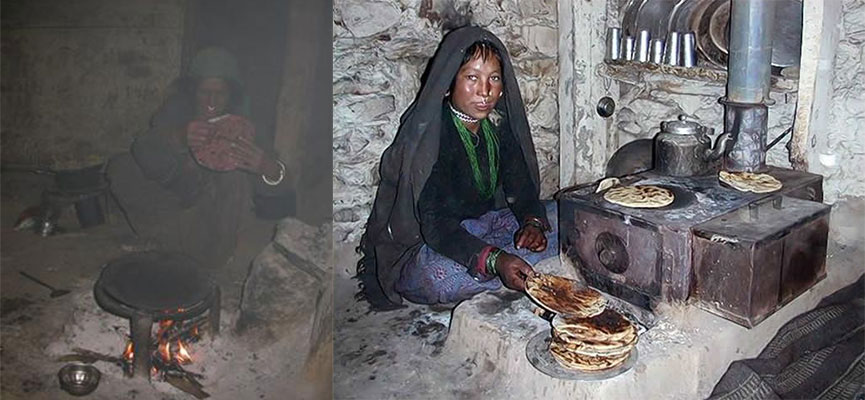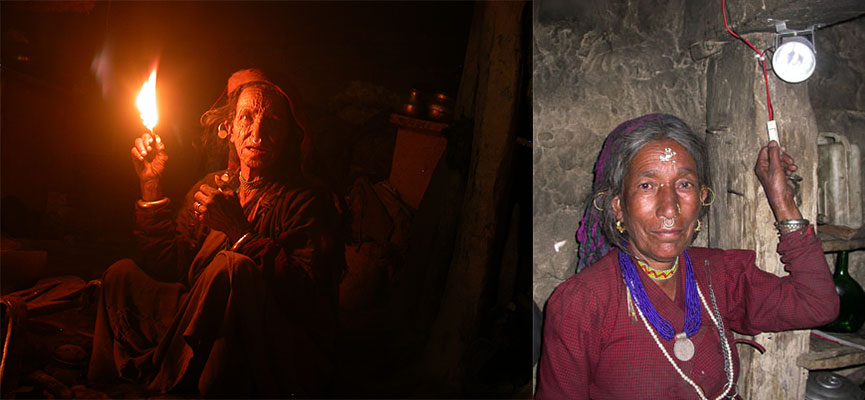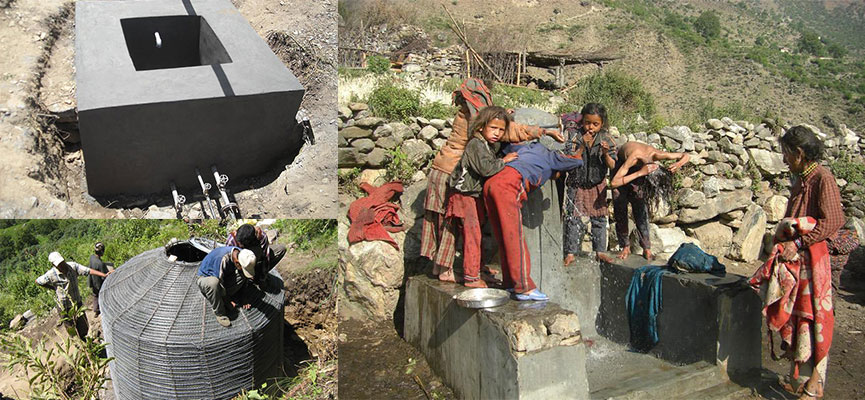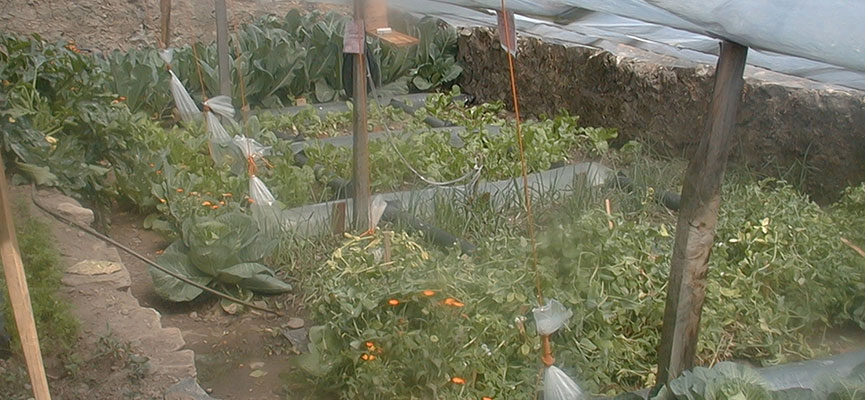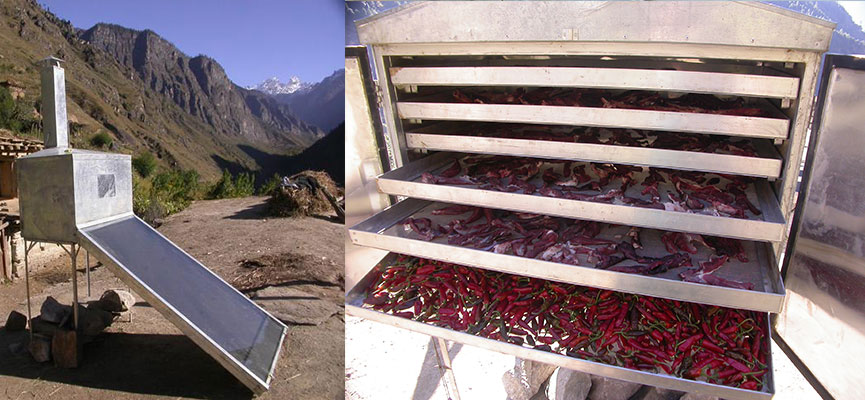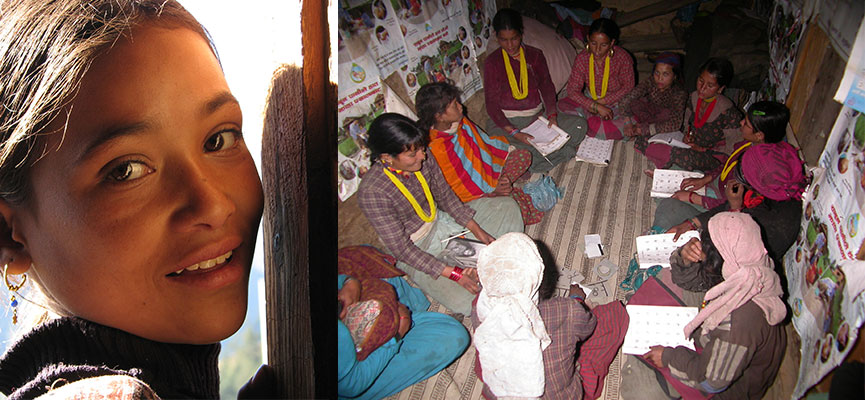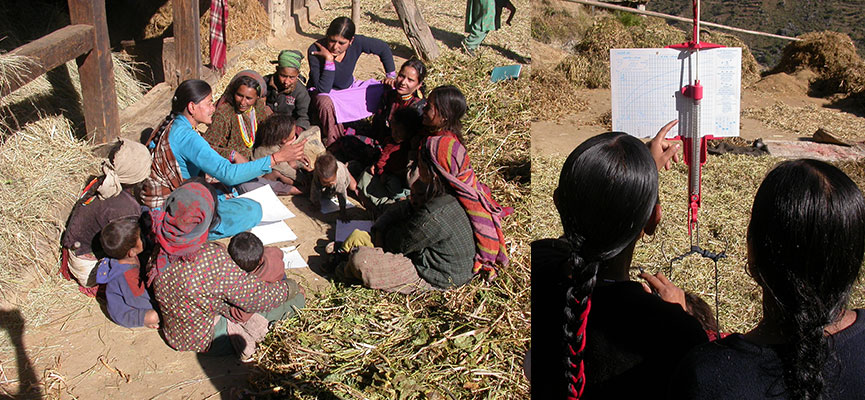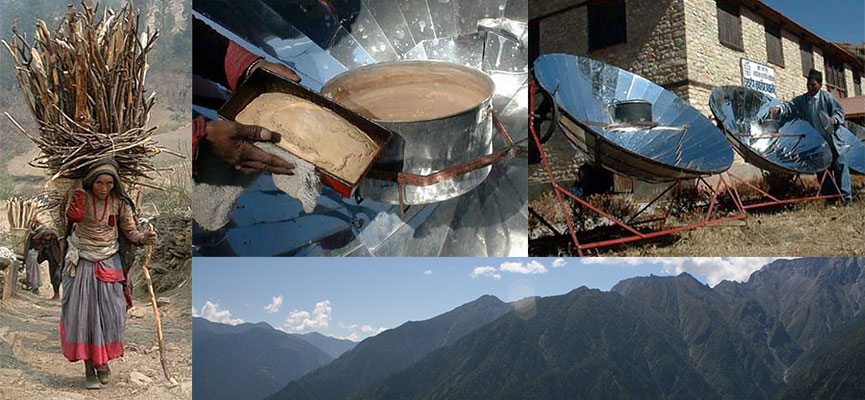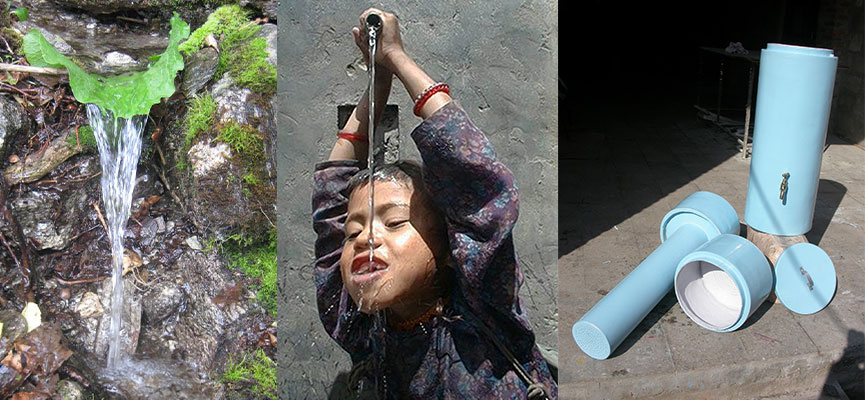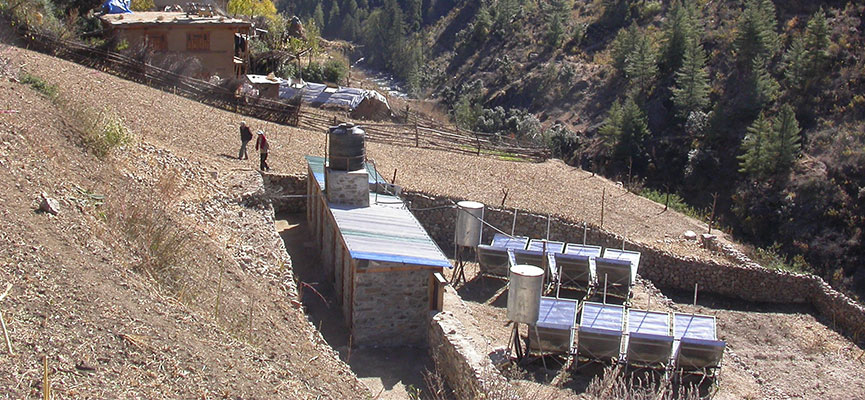Since 2002, the basic building blocks of Holistic Community Development (HCD) projects have been summarized as “The Family of 4” and “The Family of 4 PLUS”:
"The Family of 4"
- Pit Latrines for individual households and communities
- Smokeless metal stoves for cooking, room and water heating in individual households
- Rural Electrification through tapping into the local renewable energy resources through contextualized renewable energy technologies such as Solar Photovoltaic systems, Pico-Hydro Power or Wind Turbines for basic indoor lighting (white LED lamps) and other basic electricity households and whole villages
- Clean and Safe Drinking Water Supply Systems for Villages
The implementation of the “Family of 4” eliminates the most notable causes of health problems in high-altitude villages of Nepal by improving sanitary conditions, minimizing indoor smoke pollution through open fires, and by providing clean drinking water. In addition, a much more efficient use of energy is achieved for daily needs, an example of which can be seen in the lesser amounts of firewood that need to be collected per day. This saving of time as well as other benefits such as improved indoor lighting allow for an increase in everyday productivity and educational opportunities. Addressing these basic, multi-sectorial needs bring long-term synergistic benefits, closing a positive feedback loop which continues to drive forward the development of the community altogether.
"The Family of 4 PLUS"
Once the “Family of 4” has successfully been implemented, the HCD concept is gradually extended by the following elements which satisfy further basic needs regarding nutrition, hygiene, and education:
- High-altitude greenhouses to grow vegetables
- Solar Driers for food conservation
- Non-formal education programs for women and out-of school children (mainly girls)
- Nutrition programs for mal nourished infants and their mothers
- Solar Cookers
- Slow Sand Water Filters for clean and safe indoor drinking water
- High-Altitude Solar Water Heater Bathing Centers for a whole community
- Karnali Technical School Scholarships for young women and men to enroll in apprenticeship student programs
Renewable Energy Technologies
Field experience and studies clearly show that improved access to energy services, such as electricity for basic indoor lighting, smoke free cooking and room heating with a smokeless metal stove or a solar cooker, growing and drying more vegetables for ones own consumption or generation of income, is of central importance to any HCD project associated with rural communities.
Thus, a crucial ingredient of all HCD projects are renewable energy technologies, developed for a defined context, which allow us to tap into the locally available, renewable energy resources, therfore providing clean, reliable, sustainable and safe energy services. In the Himalayan mountains, the sun, wind, and water in particular provide abundantly available sources of energy for free, and for everyone.
To enable the extensive use of renewable technologies in such a way that the technologies become a part of the high-altitude Himalayan local communities‘ culture, the vast field-based experience and scientific data collected in R&D projects over almost two decades by the experts associated with RIDS-Switzerland, provide an invaluable source of insights as to how sustainable development can become a reality. Carefully designed and pragmatically optimized engineering solutions are an important part of the HCD projects, as well as the close participation of the users in the development, the adaptation and the ongoing feedback of the installed infrastructure to their needs.
Following the paradigm of project life-cycle and continuous improvement, structured follow-up surveys are being conducted upon project completion, and the maintenance of the installed infrastructure by the local people is being supported by coaching activities


